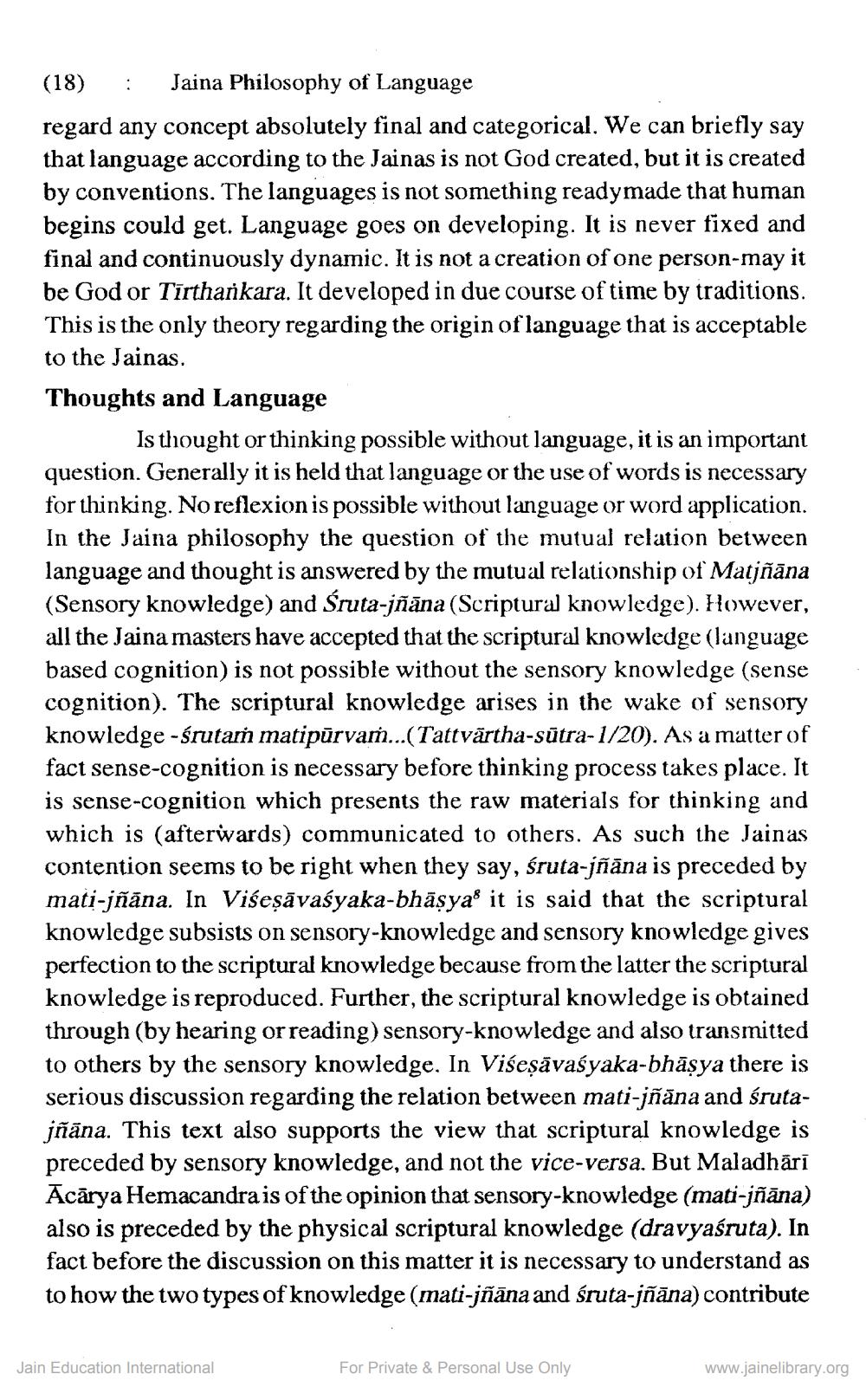________________
(18) : Jaina Philosophy of Language regard any concept absolutely final and categorical. We can briefly say that language according to the Jainas is not God created, but it is created by conventions. The languages is not something readymade that human begins could get. Language goes on developing. It is never fixed and final and continuously dynamic. It is not a creation of one person-may it be God or Tīrtharkara. It developed in due course of time by traditions. This is the only theory regarding the origin of language that is acceptable to the Jainas. Thoughts and Language
Is thought or thinking possible without language, it is an important question. Generally it is held that language or the use of words is necessary for thinking. No reflexion is possible without language or word application. In the Jaina philosophy the question of the mutual relation between language and thought is answered by the mutual relationship of Matjñāna (Sensory knowledge) and Śruta-jñāna (Scriptural knowledge). However, all the Jaina masters have accepted that the scriptural knowledge (language based cognition) is not possible without the sensory knowledge (sense cognition). The scriptural knowledge arises in the wake of sensory knowledge -śrutaṁ matipūrvar...(Tattvārtha-sūtra-1/20). As a matter of fact sense-cognition is necessary before thinking process takes place. It is sense-cognition which presents the raw materials for thinking and which is (afterwards) communicated to others. As such the Jainas contention seems to be right when they say, śruta-jñāna is preceded by mati-jñāna. In Viśeşāvaśyaka-bhāsya® it is said that the scriptural knowledge subsists on sensory-knowledge and sensory knowledge gives perfection to the scriptural knowledge because from the latter the scriptural knowledge is reproduced. Further, the scriptural knowledge is obtained through (by hearing or reading) sensory-knowledge and also transmitted to others by the sensory knowledge. In Viśeșāvaśyaka-bhāșya there is serious discussion regarding the relation between mati-jñāna and śrutajñāna. This text also supports the view that scriptural knowledge is preceded by sensory knowledge, and not the vice-versa. But Maladhāri Ācārya Hemacandra is of the opinion that sensory-knowledge (mati-jñāna) also is preceded by the physical scriptural knowledge (dravyaśruta). In fact before the discussion on this matter it is necessary to understand as to how the two types of knowledge (mati-jñāna and śruta-jñāna) contribute
Jain Education International
For Private & Personal Use Only
www.jainelibrary.org




